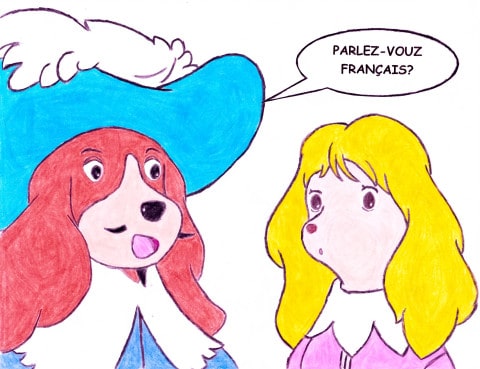Secondary language courses seem, at the very least, daunting, but students shouldn’t be too quick to dismiss them. There are plenty of benefits to learning a secondary language, far beyond providing a nice boost to your academic resume.
Some degrees require a number of language credits, but many do not. So why would students consider these classes if they aren’t necessary? Is it really worth the effort when you could take any other elective? I think it definitely is. Let’s take a look at the three most common perks of learning a secondary language.
First, there’s an undeniable new level of cool. People who can rattle off a few sentences, or simply order a beer in another language seem very interesting and adventurous.
It’s as though they just got back from a six-month soul-searching journey somewhere on the other side of the globe between “Suave-ville” and “Sort-of-mysterious-but-in-a-good-way island.”
Think of those people who pronounce commonplace French words like “croissant” with an accent as deliciously buttery as the pastry itself. That’s the kind of person you could be if you took a language class.
Second, you might actually be smarter — or at least you’ll appear to be. A 2004 study from York University suggests that multilingual people tend to do better on standardized tests, are better at remembering lists or sequences and are generally more perceptive to their surroundings.
If that doesn’t quite pan out for you, fear not. Most single language speakers will go ahead and assume you’re especially intelligent anyway if you can speak at least a passable amount of something foreign.
Remember in elementary school when a classmate would win what you assumed to be the genetic lottery and come to school wearing shiny new glasses? They always seemed smarter. Learning a secondary language is the grown-up equivalent to juvenile astigmatism.
Third, you’ll have more words to describe things when your native tongue just won’t cut it. For example, the Cree word ácimo is a more succinct way of instructing someone to tell a story. Or, there’s the German word kummerspeck, which loosely translates to “grief-bacon” and describes binge-eating in response to emotional stress.
Doesn’t eating an entire 20 pack of Timbits by yourself on the day of a big final sound better when you call it kummerspeck?
The University of Saskatchewan course catalog boasts a solid collection of language classes for students to choose from, including Hebrew, Russian, Sanskrit and Hindi, among others.
If those don’t quite whet your lingual appetite, with a little extra digging in the department of languages, literature and cultural studies, students can also find courses in Old English, Old Icelandic, Ancient Greek and Latin.
This semester, I took the proverbial plunge and opted to take French 103, a class for absolute beginners. Prior to this, I couldn’t speak any other language, save a few phrases and numbers in Dutch.
At first, I was a little intimidated by this French class. I entered as a completely blank slate and on the first day of class, we learned a few common greetings. Settling into what is now mid-term, I can speak a few complete sentences and otherwise babble like a toddler in French, but I’m having a lot of fun with it. I like to tell my bilingual friends that “je suis une bébé” — rough translation: “I am a babe” — and I’m still just learning.
Go ahead and take a language class, if only for a little break from the more monotonous lectures you already have to go to — and to order a beer in Dutch say “een bier graag.”
—
Emily Migchels
Graphic: Martin Tapia Aguilera
Leave a Reply